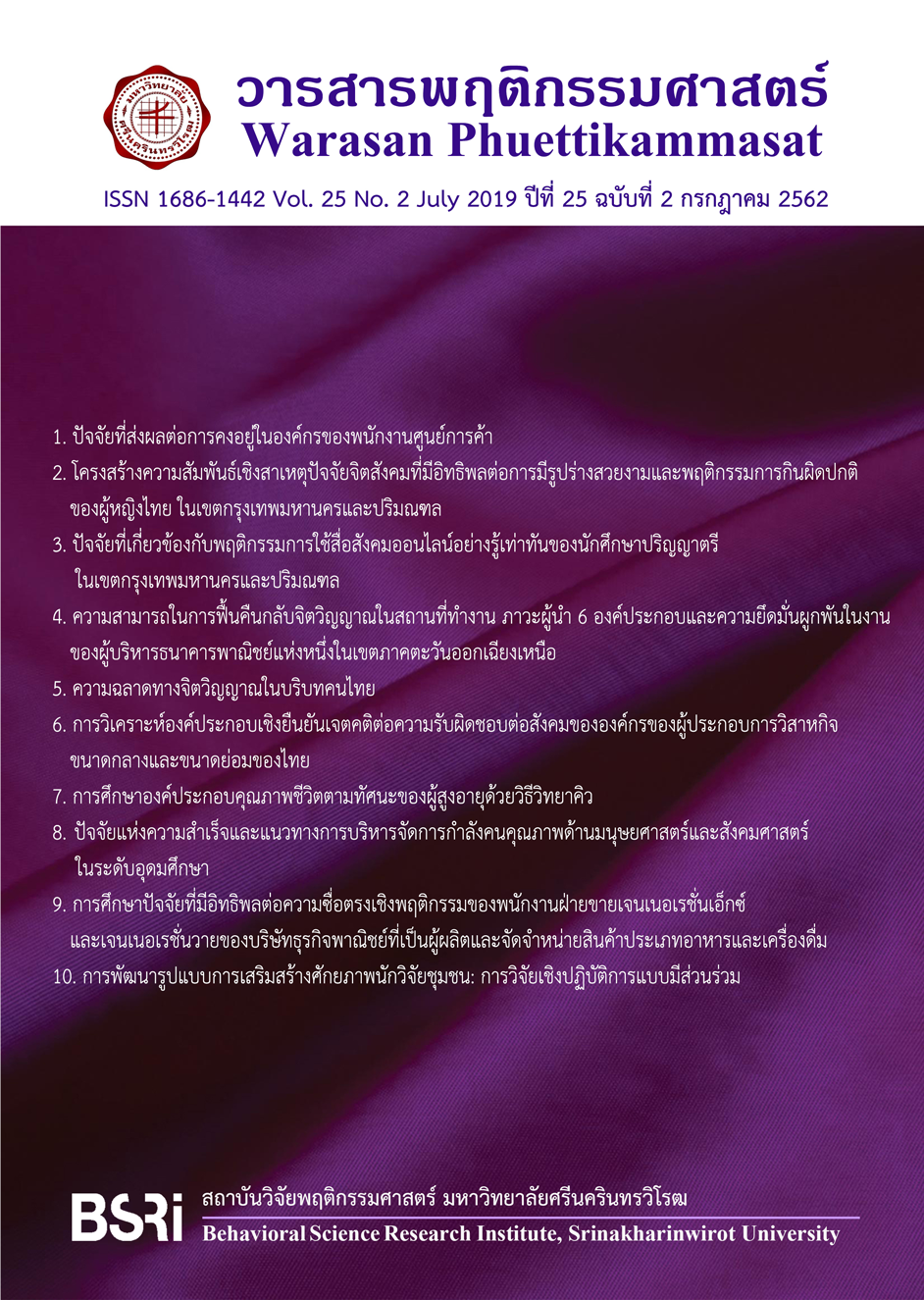ปัจจัยความสำเร็จและแนวทางการพัฒนากำลังคนคุณภาพด้านมนุษยศาสตร์และสังคมศาสตร์ที่มีคุณภาพ
Keywords:
Human Resource Development, Humanities, Social Sciences, Work Behavior, Higher EducationAbstract
การศึกษาครั้งนี้มีวัตถุประสงค์เพื่อค้นหาปัจจัยแห่งความสำเร็จในการพัฒนากำลังคนด้านมนุษยศาสตร์และสังคมศาสตร์และเพื่อศึกษาแนวทางการพัฒนากำลังคนคุณภาพด้านมนุษยศาสตร์และสังคมศาสตร์ที่มีคุณภาพ โดยใช้ระเบียบวิธีวิจัย
เชิงคุณภาพด้วยการสัมภาษณ์กึ่งมีโครงสร้างจากผู้ให้ข้อมูลที่ถูกคัดเลือกแบบเจาะจง คือ 1) นักเรียนทุนที่กำลังศึกษาและสำเร็จการศึกษาจำนวน 12 คน 2) ผู้บริหารหรือผู้แทนของสถาบันต้นสังกัดของนักเรียนทุน จำนวน 11 คน และ 3) ผู้ดูแลรับผิดชอบในโครงการติดตามและดูแลนักเรียนทุนในต่างประเทศรวม 4 คน รวมทั้งสิ้น 27 คน วิเคราะห์ข้อมูลโดยใช้
การวิเคราะห์เนื้อหา ผลการวิจัยพบว่า 1) ปัจจัยแห่งความสำเร็จในการพัฒนากำลังคนด้านมนุษยศาสตร์และสังคมศาสตร์ คือ การบริหารจัดการทรัพยากรมนุษย์ที่มีประสิทธิภาพ ตั้งแต่บริบทของโครงการฯ โดยมีการแต่งตั้งคณะอนุกรรมการบริหารโครงการฯ ที่มีประสิทธิภาพ ปัจจัยนำเข้า คือ ผู้ขอรับทุนฯ มีความเหมาะสมตามหลักเกณฑ์ที่ได้กำหนดไว้ ปัจจัยกระบวนการ คือ กระบวนการสรรหาผู้รับทุนฯ มีความเป็นธรรมและเหมาะสม ผลผลิต-ผลสัมฤทธิ์ คือ นักเรียนทุนมีความรู้ ความสามารถเพียงพอต่อตำแหน่งงานที่ชดใช้ทุน และผลลัพธ์-ผลกระทบ คือ นักเรียนทุนมีโอกาสได้ทำงานที่เกี่ยวข้องโดยตรงกับสิ่งที่ศึกษามา และ 2) แนวทางในการบริหารการพัฒนากำลังคนฯ ให้มีประสิทธิภาพ ตั้งแต่การวางแผนการสรรหาและการคัดเลือก
การถ่ายทอดของสถาบันและการสอนงาน การพัฒนาและสั่งสมประสบการณ์การเสริมแรงจูงใจ และการติดตามและประเมินผล นำไปสู่การสร้างกำลังคนด้านมนุษยศาสตร์และสังคมศาสตร์ต่อไป ผลของงานวิจัยนี้มีประโยชน์ต่อพฤติกรรม
การทำงานโดยเฉพาะการพัฒนาการบริหารจัดการกำลังคนคุณภาพให้มีประสิทธิภาพมากยิ่งขึ้น
References
Intarakamhang, U. & Peungposop, N. (2013). Effective Improvement of Talents Management for Continuing of Managing Government. Bangkok: Behavioral Science Research Institute.
McLean, G. N. & McLean, L. D. (2001). If we can’t define HRD in one country, how can we define it in an international context? Human Resource Development International, 4(3), 313-326.
Nĕmečková, T. & Krylova, P. (2014). The Czech government scholarship programme for students from developing countries- Evaluation findings and policy reflections. Evaluation and Program Planning, 43, 83-92.
Pankratz, D. (2008). Program evaluation and community schools of the Arts, Purposes, Concepts, and Tools. Retrieved on May 20, 207 from https://www.nationalguild.org/pdfs/ProgramEval.pdf.
Perna, L. W., Orosz, K. & Jumakulov, Z. (2015). Understanding the human capital benefits of a government-funded international scholarship program: An exploration of Kazakhstan’s Bolashak program. International Journal of Educational Development, 40, 85-97.
Stufflebleam, D. L. & Shinkfield, A. J. (2007). Evaluation theory, models, & application. San Francisco: John Wiley & Sons, Inc.
Swanson, R. A. & Holton, E. F. (2008). Foundations of Human Resource Development. San Francisco: Berrett-Koehler Publishers.
Tarique, I. & Schuler, R. S. (2010). Global Talent management: Literature, Integrative framework and suggestions for future research. Journal of world business, 45,122-133.
Taylor-Powel, E. & Henert E. (2008). Developing a logic model: Teaching and training guide handout. Madison: University of Wisconsin Extension. Retrieved from https://www.uwex.edu/ces/pdande/evaluation/pdf/Imguidecomplete.pdf
Downloads
Published
How to Cite
Issue
Section
License
Copyright (c) 2019 วารสารพฤติกรรมศาสตร์ (Warasan Phuettikammasat)

This work is licensed under a Creative Commons Attribution-NonCommercial-NoDerivatives 4.0 International License.
Behavioral Science Research Institute, SWU
114 Sukhumvit 23, Bangkok 10110, Thailand.
Tel.02-649-5000 # 17600


